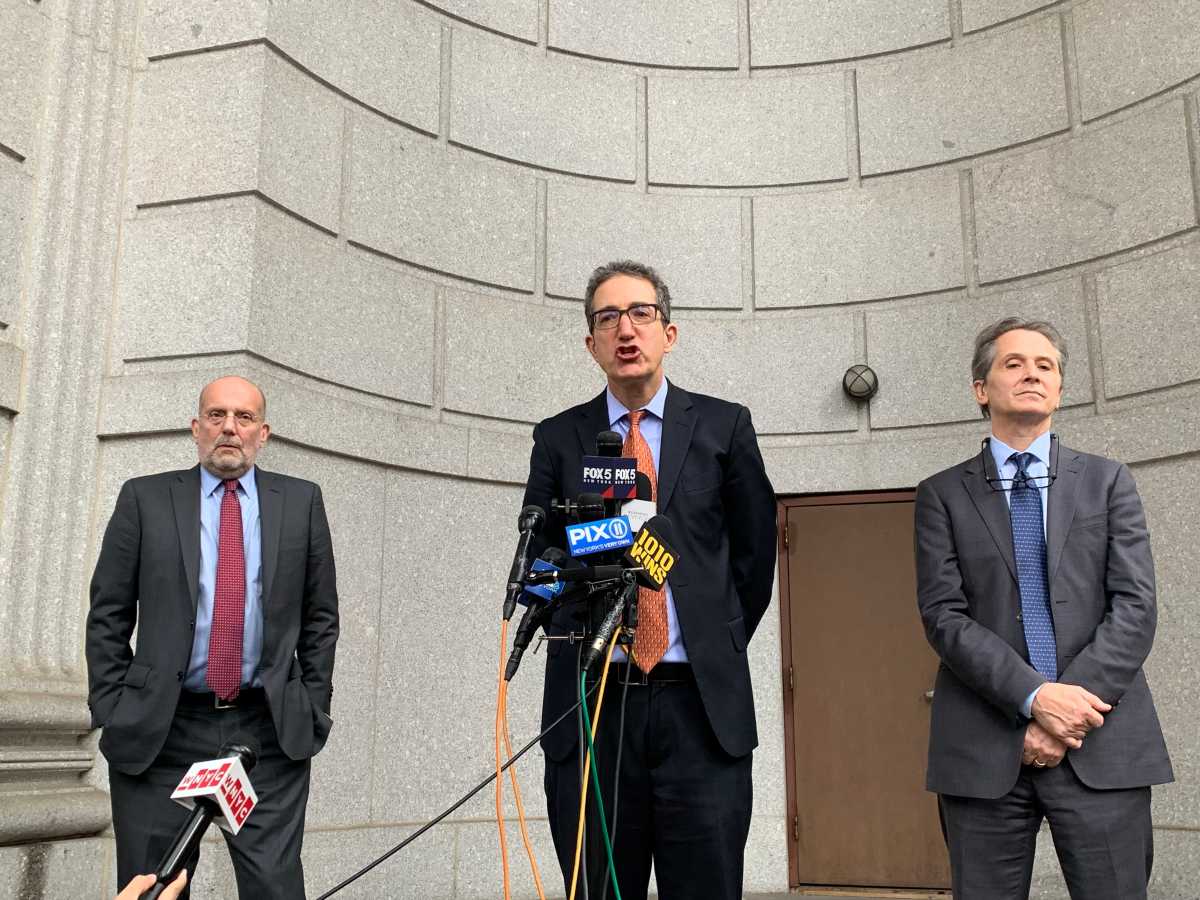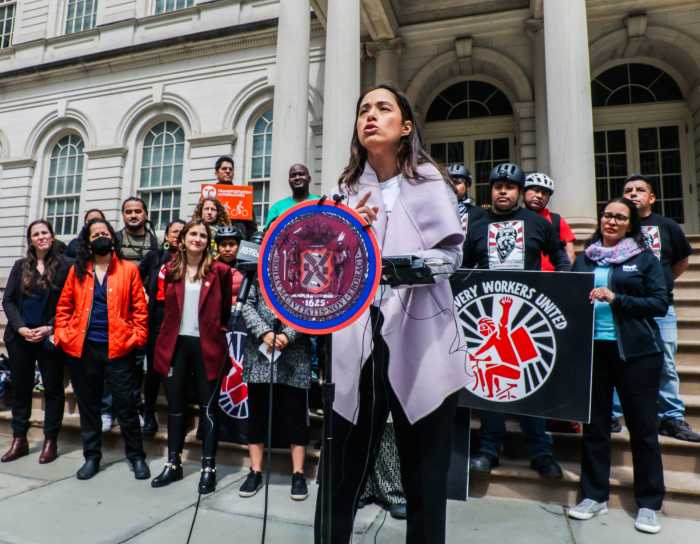Shelter stays for single adult migrants will be limited to 30 days unless there are “extenuating circumstances,” following a settlement agreement reached Friday between the city and the Legal Aid Society.
The settlement comes in the wake of court proceedings brought by the city last May that sought to alter the right-to-shelter rule so that it would no longer apply to the tens of thousands of migrants who have been arriving in the five boroughs since spring 2022. The agreement was reached after roughly five months of court-mediated negotiations between the city, Legal Aid and the state — although the state was not part of Friday’s settlement.
The agreement stopped short of relieving the city of having to provide shelter for migrants, instead upholding the long-standing “right-to-shelter,” which guarantees a shelter bed to anyone in need, while also putting in place specific rules that govern the shelter system for single adult newcomers. It only impacts single adult migrants and does not apply to migrant families, who make up a sizable chunk of those in the city’s care.
The most significant part of the plan is that it guarantees single adult migrants an initial 30 days in shelter, but only allows them to re-enter the system on a case-by-case basis if they demonstrate they fall within certain extenuating circumstances. Time in shelter is already limited for single adult new arrivals to 30 days under current rules, but it may now be harder for them to get another placement under the agreement.
Other parts of the plan include giving single adults under the age of 23 a bed for an initial 60 days — instead of 30, while allowing people with disabilities to extend their shelter stays. The city will no longer be permitted to use so-called “waiting rooms” as temporary shelters for new arrivals waiting for a new bed.
The Adams administration casted the agreement as a major victory on Friday, even though it did not win the full relief it sought, while Legal Aid walked away with several concessions like the elimination of the waiting rooms as shelters.
Deputy Mayor Anne Williams-Isom, who has been leading the city’s migrant crisis response, said the decision gives the administration more “flexibility” in managing the migrant crisis because it will be able to cut off shelter for those without extenuating circumstances after a month in the city’s care.
“Today, we are able to preserve the right-to-shelter, which we think is a good thing, and we are also able to get flexibility,” Williams-Isom said. “While the ultimate solution for this immigration issue lies with the federal government, and we all know that, this agreement represents the tireless good faith efforts of everyone here to address one of the biggest crises to ever face the city.”
David Giffen, who leads the Coalition for the Homeless, which Legal Aid represents in the right-to-shelter case, also took a victory lap over the agreement — citing its protection of the right-to-shelter and formalization of protections for new arrivals.
“We are relieved that the legal fight is over and that there’s now a framework to protect new arrivals under this temporary crisis plan,” Giffen said.
But the standard for who can get their shelter placement renewed could prove to be a point of contention between the city and Legal Aid going forward.
The city’s Corporation Counsel Sylvia Hinds-Radix, who represents the city in legal matters, reiterated that it would be a case-by-case determination of who would get an extended stay in city shelters. As an example, Hinds-Radix said a situation where someone is supposed to leave a shelter and has a lease for an apartment, but needs somewhere to live for 10 days until the lease begins, would qualify someone for an extension.
Legal Aid staff attorney Josh Goldfein explained that the agreement says single adult migrants can ask for more time either during their allotted 30 days or when that period ends. He said there are several circumstances under which people would be given more time, including anyone who is making a “genuine effort” to try and find alternative housing outside of the shelter system.
“If they have done that, then that’s an extenuating circumstance, spelled out in the document, that is one of the reasons why the city will be required to give you more time,” Goldfein said. Now, it’s going to be an individualized review on a case-by-case basis, they’re going to look at all your facts. ‘What have you done?’”
The Legal Aid attorney said the city will work more intensively with migrants to advise them about all of the options available in their search for more permanent housing — something the city says it has already been doing.
Goldfein insisted that the agreement actually gives migrants more of an ability to stay in shelter for as long as they need. He argued the city is more concerned about messaging to migrants that they need to find other places to live than actually kicking them out of shelter.
“It is clear that the city’s priority was around messaging,” he said. “They believe they need to create urgency in people to find a way to move on.”





































